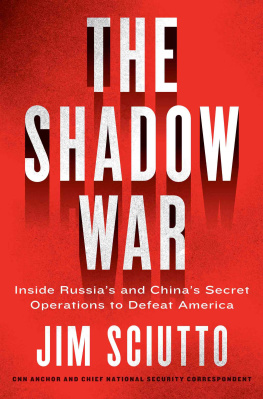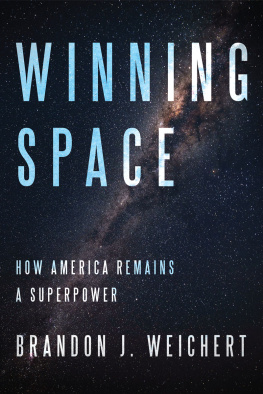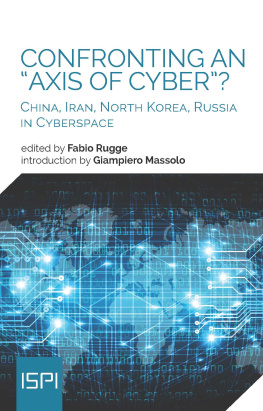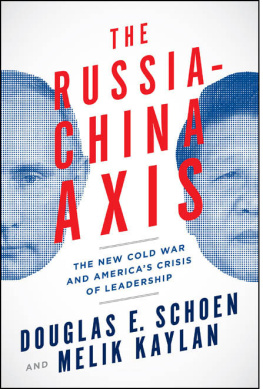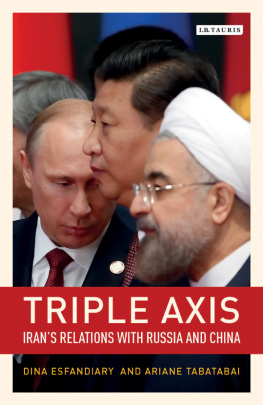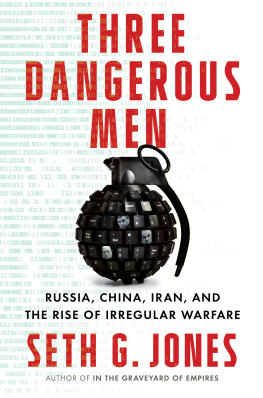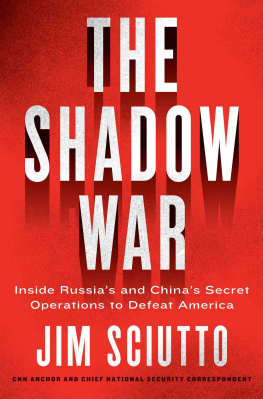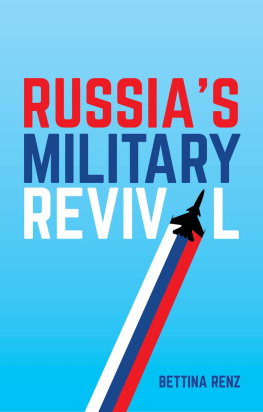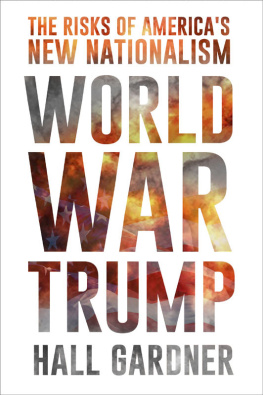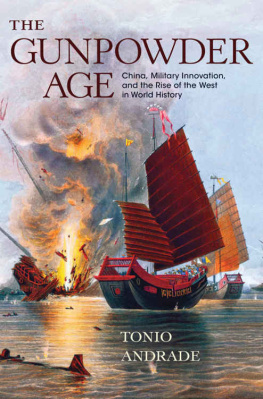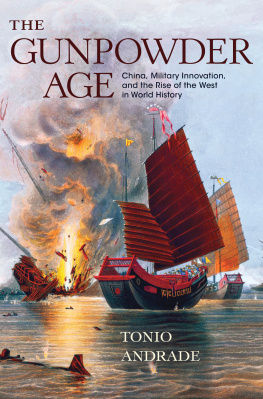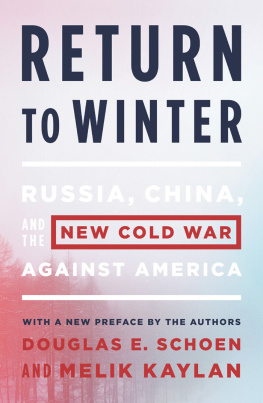T he senior government official went quiet whenever the waiter approached the table, restarting only once he had walked away. In the past, he had been one of the most difficult sources for me to meet. I would always be the one initiating contact and, most of the time, I got a no, or no answer at all. This time, however, he had requested the meeting. He was very careful by nature, so I knew he had something to say. His choice for lunch was an odd one for a private conversation. Caf Milano is a caricature of the high-powered Washington eatery: overpriced food, obsequious staff, an expensive wine list, and a clientele comprising a whos who of Washington and international power brokers. And yet here we were discussing what was arguably Russias boldest and most frightening overseas operation since the Cold War.
My source told me Western intelligence was now highly confident that Vladimir Putin himself had ordered and directed the poisoning of the former KGB agent Sergei Skripal and his daughter, Yulia, in Salisbury, England, earlier that spring. The attempted murder with the powerful Russian-made nerve agent Novichok had shocked the United Kingdom and Europe. The use of Novichok was particularly alarming. Many times more deadly than even the most powerful nerve agent ever in the US arsenal, VX (which has been banned for decades), Novichok kills by disrupting nerve signals throughout the body, causing repeated and uncontrollable muscle contractions. Victims are left convulsing in pain, vomiting, and foaming at the mouth, which is how witnesses found the Skripals that day on a park bench in Salisbury. In the months following the attack, every European official I met described it in frightening terms. By carrying out a potentially deadly operation on the soil of a NATO ally, they argued, Russia had set a new, frightening standard for its malign activities abroad.
US and Western intelligence agencies had very quickly surmised that such an operation could not have happened without the knowledge of senior Russian leaders, and in the top-heavy Kremlin, Putin was the only senior leader who mattered. However, a direct order from the Russian president to assassinate someone on British soil would elevate the stakes. And my source told me that Western intelligence agencies had now concluded it was highly likely Putin had done just that. With the Skripal operation, Putin appeared to have sent two bold messages: to the British and the West, that he saw no territorial limits to Russias violent actions abroad; and to Russian dissidents and other critics, that they were not safe anywhere in the world.
My contact leaned in to share one more disturbing detail. British investigators had now determined that the two Russian military intelligence agents who had carried out the operation had brought enough Novichok into Britain to kill thousands.
Thousands? I asked to be certain.
Yes, thousands, he repeated.
Western intelligence did not believe the Russian hit team intended to kill thousands of its citizens. However, the gall of transporting an extremely dangerous substance in such an immense quantity into the United Kingdom stunned Western leaders. Moving even a small amount of Novichok carried enormous risks to anyone who came into contact with it. That had been made clear when two Salisbury residents unconnected to the SkripalsCharlie Rowley and Dawn Sturgesscame across a vial of the substance innocently disguised as a bottle of Nina Ricci perfume, apparently discarded by the Skripals attempted assassins. After spraying the substance on her wrist believing it was perfume, Sturgess fell ill within minutes and died days later; Rowley only narrowly survived. Remarkably, Skripal and his daughter survived as well, but only after weeks in the hospital. Smuggling immense quantities of Novichok into the United Kingdom obviously increased the risk of more casualties. Moscow seemed to be demonstrating how little it cared and, crucially, how little it feared Britains and the Wests response. This was a massive chemical weapons attack inside the West by Russia. It was unprecedented. Or was it?
As shocking as the Skripal poisoning was proving, each detail sounded remarkably familiar to me. Twelve years earlier, while based in London as senior foreign correspondent for ABC News, I had covered the assassination of the Russian dissident Alexander Litvinenko. In a plot seemingly stolen from the pages of a John le Carr novel, two Russian agents had poisoned Litvinenko with radioactive polonium-210 injected into his cup of tea. Just a speck of the substance was powerful enough to kill several people. And its radioactivity is so strong that British investigators were later able to trace its entire path into and around Britain, from seats 26E and 26F on the Russian jet the two agents had flown into London, to their room in a Best Western hotel on Shaftesbury Avenue in Piccadilly, to the Arsenal football stadium, where they had taken in a match, to the Itsu sushi restaurant where they first met Litvinenko, all the way to the Pine Bar of the Millennium Hotel in Mayfair, where they delivered the deadly dose.
The target and the weapon were different from the poisoning of Sergei Skripal, but the pattern was the same: an extraterritorial assassinationthis one, successfulof a man the Kremlin viewed as an enemy of the state. Like Skripal, Litvinenko was a former agent of the FSB, the successor to the KGB. He had been expelled from the FSB in 1998 after making public allegations of illegal activity by the Russian intelligence services. His most explosive charge was contained in a book claiming the Russian president had staged a series of deadly terror attacks on Moscow apartment buildings in 1999, not the Chechen terrorists whom the Kremlin had blamed. The goal: to assure Putins election in 2000 and provide justification for Russias second military intervention in Chechnya.
In 2000, Litvinenko fled Russia with his wife and son to the United Kingdom, where he requested political asylum. A year later, he was granted asylum and went on to become a British citizen. In his new home in the West, in a NATO ally no less, he thought he would be safe. And he continued his work exposing what he claimed were the crimes of the Russian leadership. He allied himself with another London-based Russian dissident and Putin critic, Boris Berezovsky. Soon before his death, Litvinenko had accused Putin of ordering the murder earlier in 2006 of the Russian journalist Anna Politkovskaya. In the end, he like Skripal was still within reach of the FSB.
The 2006 operation was uniquely bold. The hotel where Litvinenko was poisonedthe Millenniumwas just a half block from the US embassy in London. More alarmingly, the weapon was extremely powerful. At the time, alarmed British officials described it to me as the countrys first-ever chemical weapons attack, comparing it to detonating a dirty bomb on the streets of London. And as with the Skripal poisoning, Russian operatives had put thousands of people in danger.
Many thousands of members of the public, including British residents and visitors from overseas, might have been at risk from radioactivity, an investigating lawyer told the official British inquiry into the poisoning in 2016.
In the wake of the attack, British authorities would test some eight hundred people for contamination. Dozens were found to have elevated doses of radiation. Some, such as Litvinenkos wife and son, were contaminated by coming into direct contact with him. From those and other contaminated sites the radiation spread like the outbreak of a deadly pathogen. Others who had even passing contact with his family were also found to be contaminated. In turn, people who had come into passing contact with those secondary victims were found to be contaminated as well. The web of primary, secondary, tertiary contacts, and so on, would grow to hundreds.

